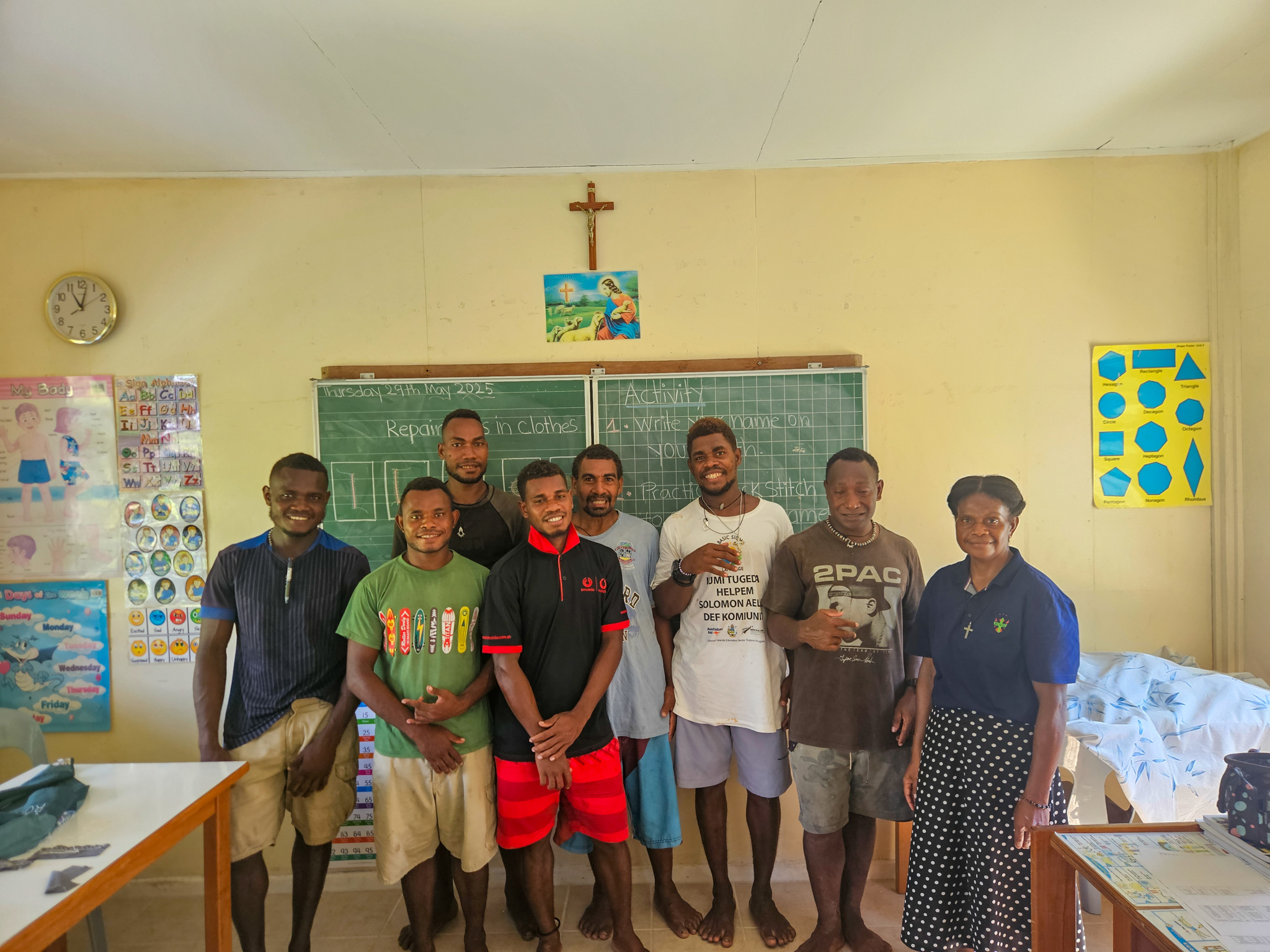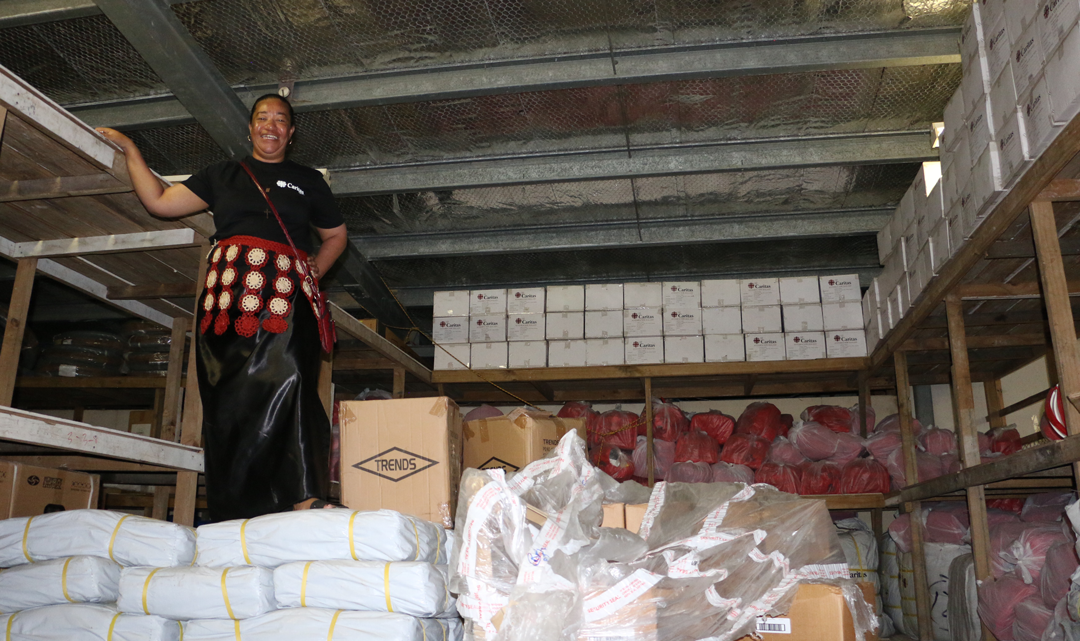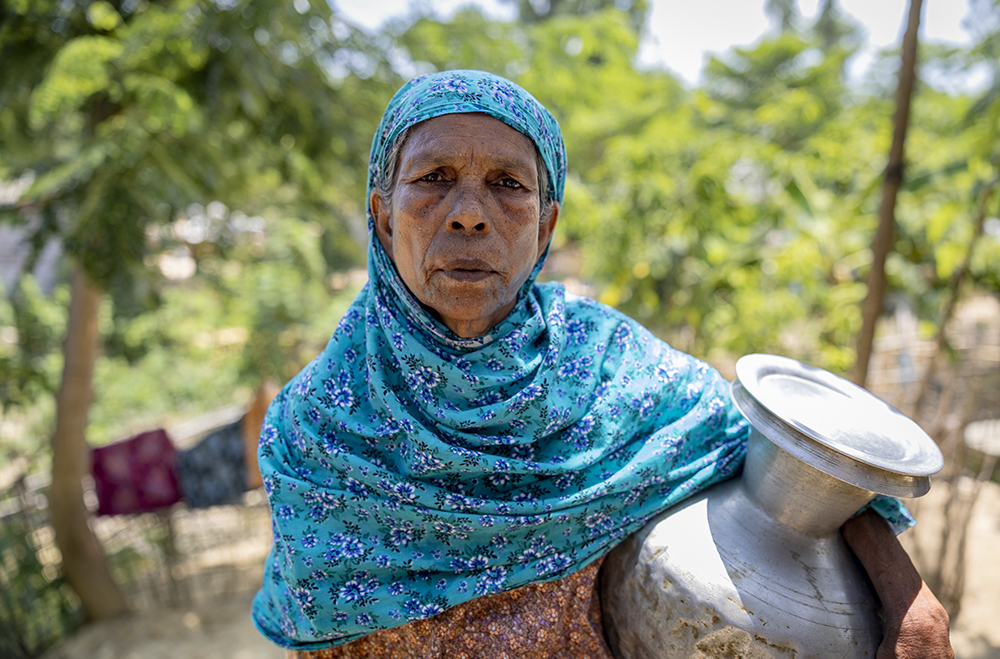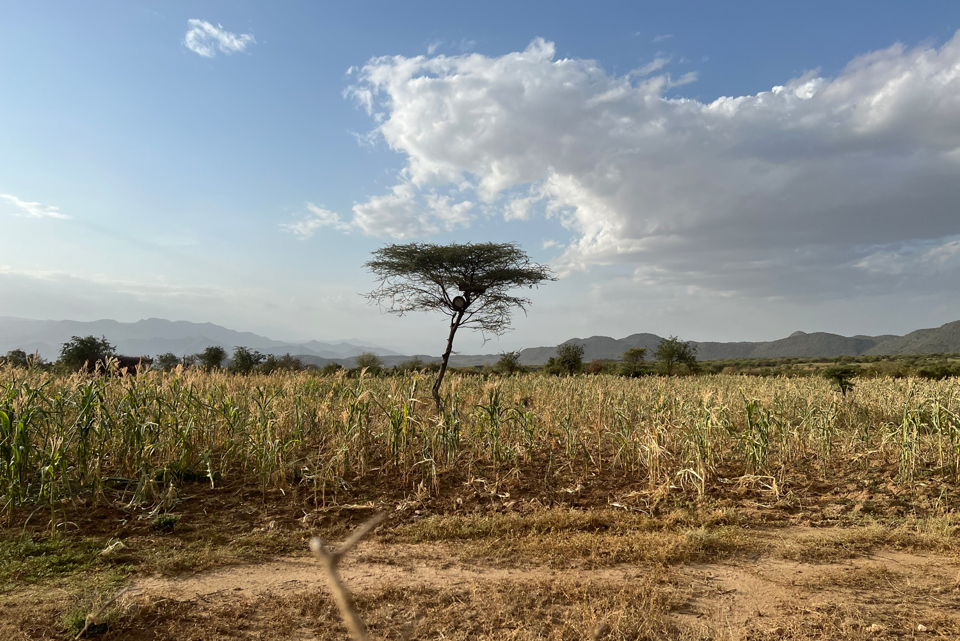
Drought struck lands of southern Ethiopia. Photo, Richard Landels, Caritas Australia
1: The conflict in Ukraine has a direct impact on Africa
It has been all over the news. The conflict in Ukraine has affected everyone. Some people have had to flee their homes; some have taken up arms to defend their land, but internationally, this war has had a surprising impact on the availability of vital goods.
Ukraine and Russia together supply an immense amount of food and resources to the world. Major aid organisations like the World Food Programme (WFP) rely on Russia and Ukraine to make up 50 per cent of their supplies of wheat and barley.
Industrial countries like Sweden and Poland rely on Ukrainian Ammonium Nitrate to make high quality fertilisers and Russian natural gas is a vital source of energy not just in Europe but in the Middle East and North Africa.
Countries like Ethiopia and Kenya rely on fertiliser for over 80 per cent of their crops, making a shortage of fertiliser disastrous.
Food imports have risen dramatically over the past few years, with 47 million tonnes of wheat being imported into Africa. This shows no sign of slowing down and with domestic food production at an all-time low, food imports are now more vital than ever.
The Russian and Ukrainian export shortage is also having a deeper effect on the entire global economy. With high end manufacturing and advanced processes disrupted by the halt in supply of something as simple as copper or natural gas, there is a notable trickle-down effect that ends with countries like Ethiopia, Kenya, or Somalia.
For example, if the conflict prevents Russia from exporting oil and copper, this means that manufacturers in China and India are unable to synthesize plastics, silicones, and advanced micro electronics. On the other side of the world this means less industrial farming equipment, it means less transport, it means less food.
The ability for the WFP to respond to a growing food crisis is being diminished every day that the conflict goes on.
The global supply chain of fertilisers, staple food stuffs, raw materials and fuel has been severely impacted. A single broken link in the chain can have devastating effects further down the line.
This is why the term “world food crisis” is now being used.
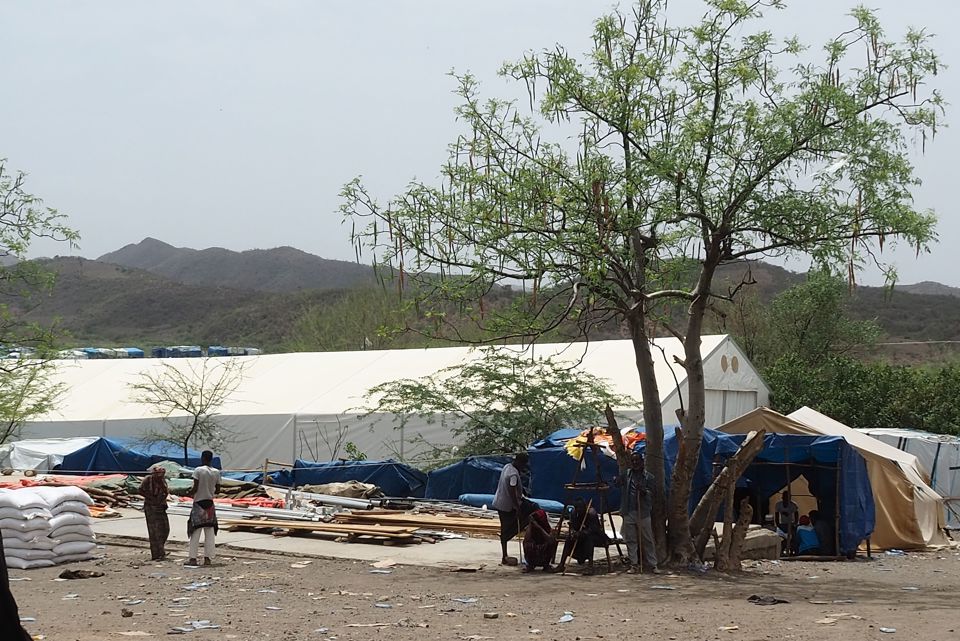
An Internally Displaced Persons camp in northern Ethiopia, with makeshift shelters. Photo credit: Caritas Australia
2: The number of displaced people is rising
Across eastern and northeastern Africa, in countries like Burundi, Ethiopia, Kenya and Somalia, there are an estimated 12.3 million displaced people.
Many are women, children, elderly, and people living with disabilities or chronic illnesses.
With each passing year this number steadily rises. The African Food Crisis will push not just regional conflicts to further extremes but will also force a considerable number of people from their homes, seeking food, water, and shelter.
Displacement of people can be caused by different conditions. While over 80 percent of displacement in Burundi is due to climate change, the 5.1 million people displaced in Ethiopia are due to a combination of drought and conflict.
Mass displacement of people is extremely dangerous and difficult, not just for the people on the move, but for neighbouring countries and communities.
Displacement of people does not simply mean people leave and resettle elsewhere. Families are torn apart through dislocation, lives are lost due to the lack of support, vulnerability to disease increases, and families risk falling into poverty.
Food, water, medicine and power are all harder for people to access when they are forced from their homes. As different crises continue and more people are forced from their homes, these issues only intensify.
To compound this, displaced children have reduced access to school while the disruption in their lives continues. Displaced people might move to an area with a different dialect, or they move to an area without enough space to accommodate new students.
When large numbers of people arrive in a new community, that community is rarely equipped to handle a sudden surge in population and so there is typically a dramatic rise in local prices. This has serious impacts on the host community as well as the displaced and can even cause tension and conflict over the long-term.
With limited ability to act upon mental health needs, cost of living and cost of food, the situation for displaced people requires immediate and ongoing support.
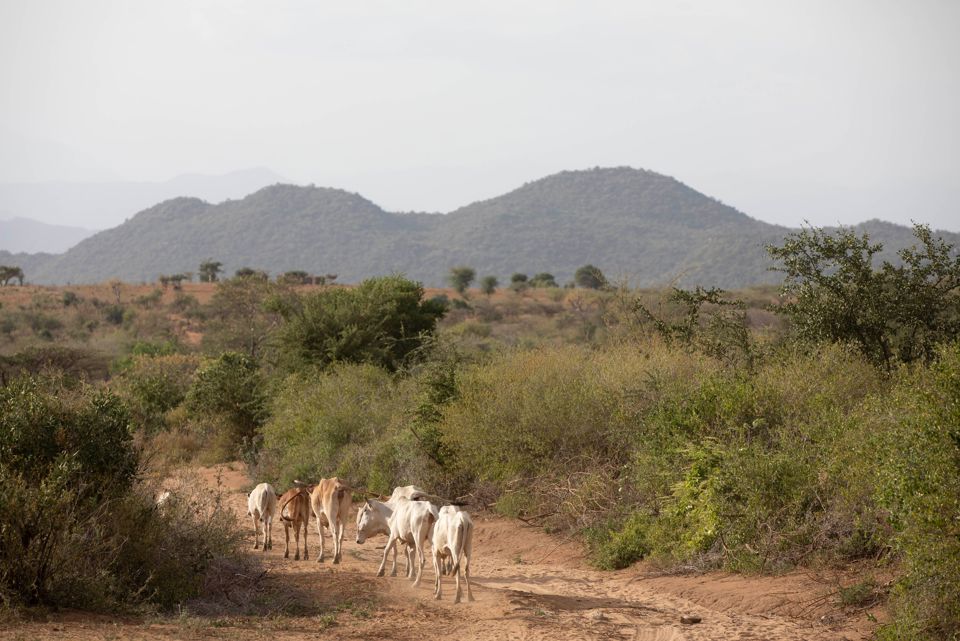
Dry lands in southern Ethiopia, with malnourished cattle on a sandy track. Photo credit Zacharius Abubeker via Caritas Australia
3: Climate change has pushed the worst-case scenarios to the extreme
Every country will feel the effects of climate change, but especially developing nations. Soaring temperatures, drying rivers and parched soil have pushed the already beleaguered farmlands to the limit. The current ongoing drought in Africa is the worst experienced in many years.
Having recently suffered one of the worst locust swarms in the past decade, Ethiopia has now had to contend with a prolonged and devastating drought. Locust swarms are magnified by drought, causing them swarm over larger and further distances to feed their exploding numbers. Typically, as a region gets drier and more inhospitable, locusts begin to move en masse.
Over the years, destructive farming practices have degraded soil quality globally. A reliance on chemical fertiliser for subsistence farming has meant that soil nutrients are decreasing.
This means that with each harvest the number of crops is lower than the year before. With each passing year the soil becomes less productive – meaning it takes more chemical fertilisers to compensate.
Eventually soil degradation can reach such an acute level, that farms will produce barely a fraction of what they were capable of years earlier. As people still need to support a level of output, it creates a negative feedback loop, where without an ongoing support and eco-friendly farming practices, soil degradation will lead to desertification and extreme environmental damage.
As temperatures soar, unpredictable weather patterns will become increasingly common. Floods, fires, and droughts will not be rare events, but regular.
Climate change adaptation strategies are already being developed and deployed over the world and with increased aid and support to regions like the Horn of Africa, climate change mitigation is possible.

Bute, the elder of a small village in southwestern Ethiopia. Photo: Zacharias Abubeker/Caritas Australia.
4: Women and children are most impacted
Women and children often suffer the most in times of food crisis. Women across the world continue to be disproportionately affected by poverty. And yet, they are also the ones most likely to lift their families and children out of poverty.
Agricultural gender inequalities continue to remain strong. Female farmers are particularly at risk of hunger, especially when a crisis takes hold. In Kenya and Ethiopia, rural women account for up to 75 percent of farm labour. Despite their crucial roles in household food security, they face discrimination and limited bargaining power.
Unequal access to land and markets makes life much harder for women farm owners. Women often experience issues with land rights, making their ability to control their own lives and do what is best for their families harder, without aid.
Within households, Women often eat last and the least. Women farmers who control their own lives, work and families have better-quality diets.
Women are vulnerable on all dimensions of food insecurity: availability, access, utilisation, and stability. They suffer the most from nutrient deficiencies, especially during reproductive years, with long-term negative development impacts for society.
As families are affected by the food crisis, be in the form of drought, displacement, economic hardship, or hunger, children often must sacrifice their education to help their families survive.
In Somalia, which is currently experiencing the worst drought in 40 years, it is estimated that 1.7 million children are out of school, with a total of 3.1 million school aged children needing education support. Due to the impact of the drought the risk of children dropping out of school to either move to safer lands or to help their families gets higher and higher.
Unfortunately, while droughts may not last forever, many children who drop out of school, especially girls, never return to classes once they leave and are unable to complete their education at all.
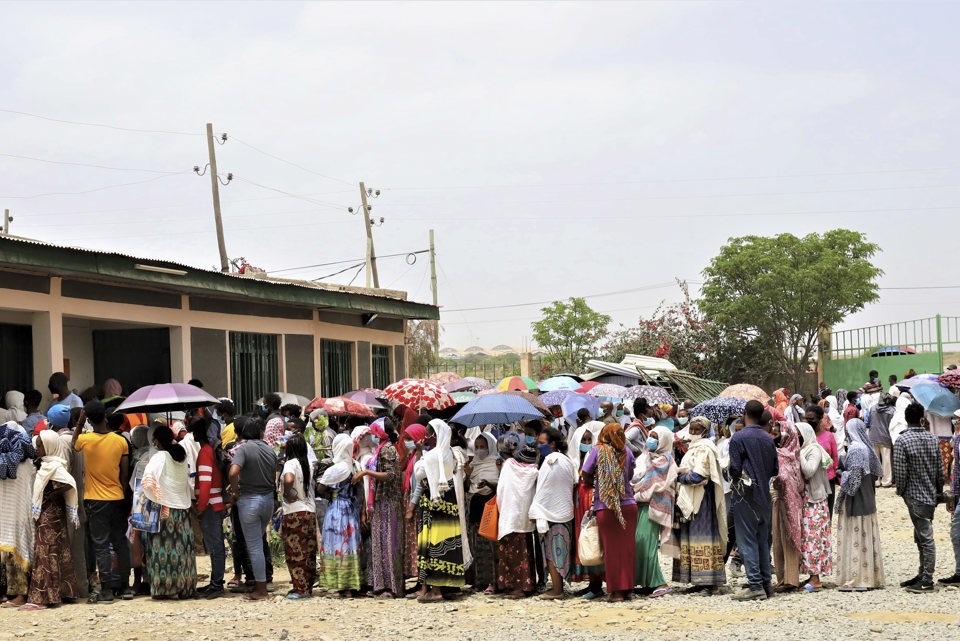
Queue for food in Ethiopia. Photo by: Melikte Tadessse, CRS.
5: A food crisis is the beginning of a greater human rights crisis
Dwindling food supplies are usually one of the first indicators of a major crisis in any country. The African Food Crisis will cause more than just hunger.
The food crisis puts many systems under pressure. As hunger rises so does hunger-related illness and disease. Malnutrition in infants can be the cause of life-long and damaging conditions. As countries are pushed closer to famine, the food crisis will take a heavy toll on the ability for people to cope with everyday life.
Caritas Australia’s partner, Catholic Agency for Overseas Development (CAFOD) reports that around 800 million people go hungry each day and many of them are those who grow the world’s food.
Three-quarters of people facing hunger in the world are living in rural areas and most of them depend on agriculture for their livelihood.
A quarter of people in Africa are affected by hunger – which now has the highest number of people affected by hunger globally. WFP Director David Beasley describes food crises as the spark that could set off global catastrophes. Countries experiencing food crisis suffer from increased displacement, increased crime, increases in disease and all-around degradation of quality of life.
As people are displaced from food shortages and drought, access to clean and safe drinking water comes under threat. The African Food Crisis has thrown into sharp relief the urgency with which help is needed. Clean water is not just vital for drinking, without clean water for sanitation, people will see higher rates of disease, infections, and sickness. As people endure shortages of food and contend with shortages of clean water, health outcomes will be reduced across the board.
The worst effects of the African Food Crisis can be avoided. With your support Caritas Australia and our partners in Ethiopia, Kenya, Somalia, South Sudan and Eritrea can make a meaningful difference in people’s lives.
"Each of us has a role to play in transforming food systems for the benefit of people and the planet. If we do not want to jeopardise the health of our planet and our entire population, we must encourage active participation in change at all levels and reorganise food systems.” - Pope Francis 2021.
You can read more about global food security or how the food crisis is currently affecting Africa here:






